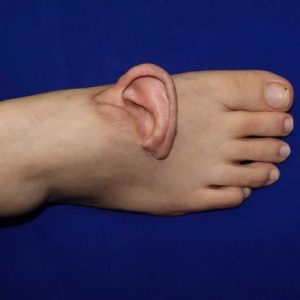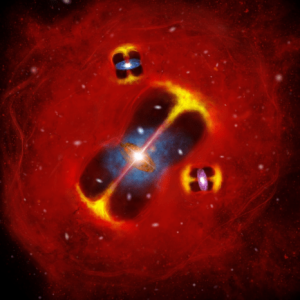To view this video please enable JavaScript, and consider upgrading to a web
browser that
supports HTML5
video
Nasa astronauts stranded on the International Space Station (ISS) for 286 days have finally returned to Earth – and they received an unexpected welcome.
Barry ‘Butch’ Wilmore, 61, and Sunita ‘Suni’ Williams, 59, splashed down off the coast of Florida at 9.57pm (GMT) after nine months alongside Nick Hague and Aleksandr Gorbunov.
The crew were only meant to be on humanity’s home in the sky for a week when they arrived in June.
But when the Boeing spacecraft they were test-driving, Starliner, experienced problems with its propulsion system, officials decided it was safer for them to stay put on the ISS.
While Butch and Suni’s families will understandably be thrilled to see them again, a pod of dolphins also appeared to welcome them home.
While waiting for the recovery team to pull their capsule from the Pacific, several of the marine mammals started swimming around them.
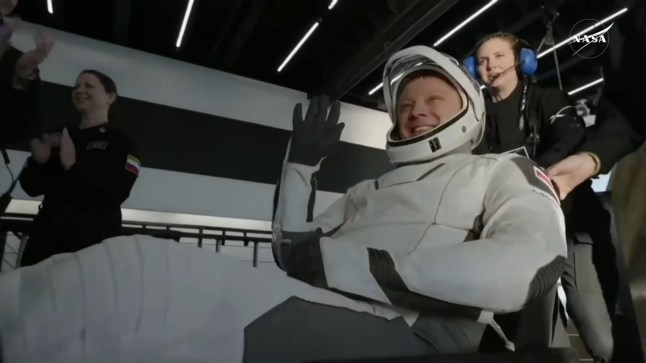
The intelligent sea creatures seemed to be checking out the disturbance as the capsule was checked and hoisted onto a waiting boat.
Incredible footage caught the dolphins swimming around both the capsule containing the astronauts and the recovery team in the water.
They repeatedly breached the water to breathe, potentially also trying to get a closer look at what was going on at the surface.
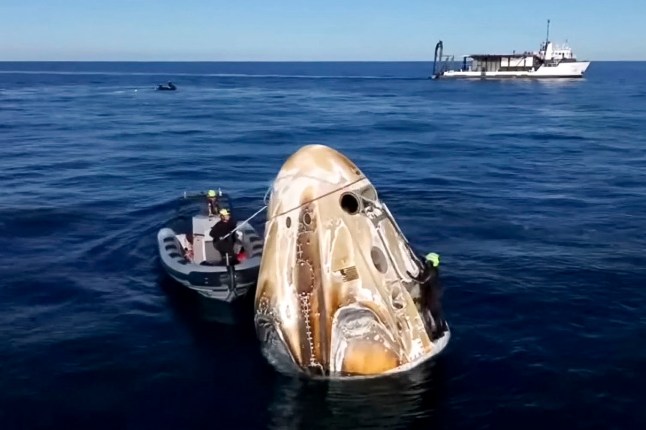
Butch, Suni, Nick and Aleksandr were seen smiling and waving at the camera as they were wheeled off for medical checks after their landing.
They will be given health assessments and flown to their crew quarters where they will stay until given the all clear.
Yesterday Suni and Butch alongside two other astronauts finally boarded SpaceX’s Crew Dragon capsule after spending nine months longer than expected up on the ISS..
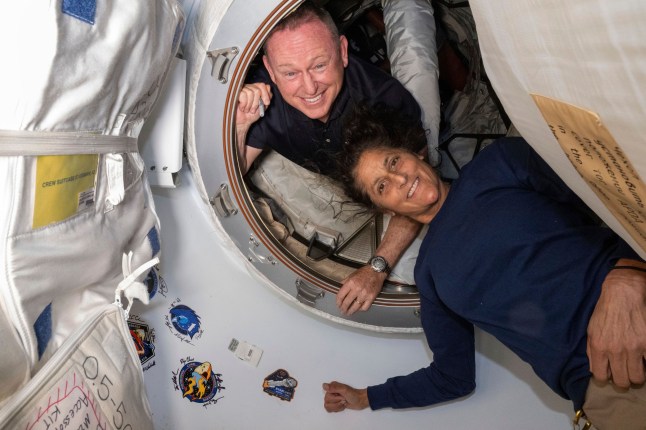
At approximately 5.57pm (EDT), the vehicle splashed down off the Gulf Coast near Tallahassee, Florida, Nasa’s live stream showed.
Officials decided on the location as the waters of the Pacific are generally calmer, making it safer for the crew to land.
A tracker by SpaceX, Elon Musk’s rocket company, showed how Dragon spent 17 hours whizzing around the Earth, travelling almost the same path over the Earth as the ISS did.
To view this video please enable JavaScript, and consider upgrading to a web
browser that
supports HTML5
video
Butch, Suni, Nick and Aleksandr will soon dry off and head to the hub of Nasa’s human spaceflight operations, the Johnson Space Center in Houston.
The return mission, called Crew-9, brings an end to their 286 days in space.
Suni and Butch’s mission was simple: test Boeing’s new Starliner spacecraft and then head home.
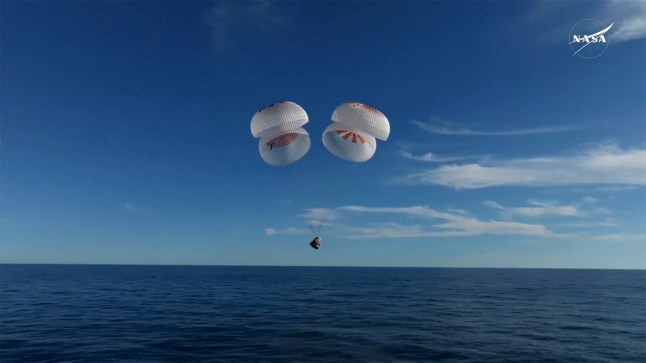
As Starliner approached the space station, however, some of its thrusters stopped working for a while.
While it was able to dock, space agency officials decided to bring Starliner back to Earth – without Butch and Suni – to troubleshoot what went wrong in September.
During their unscheduled time in the stars, the two became full crew members of the space station, conducting science experiments, carrying out spacewalks and performing upkeep.
The ISS has been continuously occupied by astronauts for almost 25 years, with Suni and Butch waiting for new crew members to relieve them of their duties.
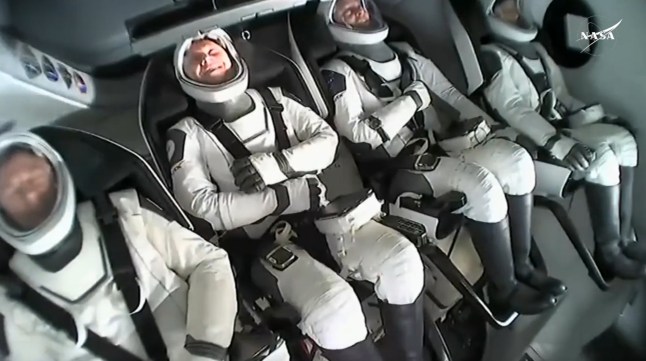
They, among other things, voted in the US presidential election, ate Christmas dinner and exercised for some two hours a day.
And they had good reason to, experts told Metro. Without gravity, fluids within the human body float upward, causing faces to swell, legs to become scrawnier and bones to wear down.
They may even have developed a bizarre skin condition known as ‘baby feet’, where their skin is so soft that it has become overly sensitive and easily irritable.
Suni and Butch will undergo medical examinations to see what toll the unexpected nine-month layover in orbit has taken on their bodies.
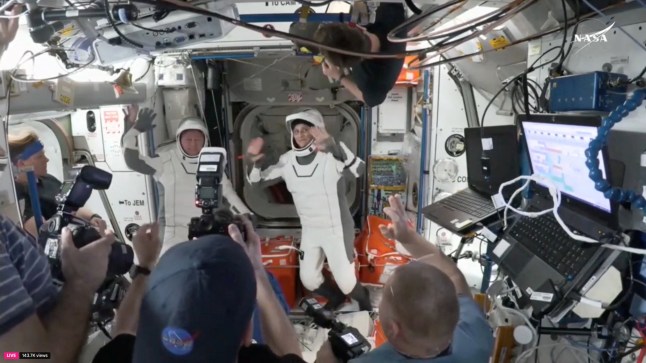
They’ll also have to get used to living as lowly Earth dwellers once again, something that some astronauts struggle to do due to the ‘overview effect’.
Seeing the Earth as a lonely blue marble is a view only a few have ever had, inspiring a profound cognitive shift.
‘It opens up the door to making you think a bit differently. It’s the one planet we have and we should be taking care of it,’ Suni said in September.
‘There are so many people on Earth sending us messages it makes you feel right at home with everybody.’
Get in touch with our news team by emailing us at webnews@metro.co.uk.
For more stories like this, check our news page.



